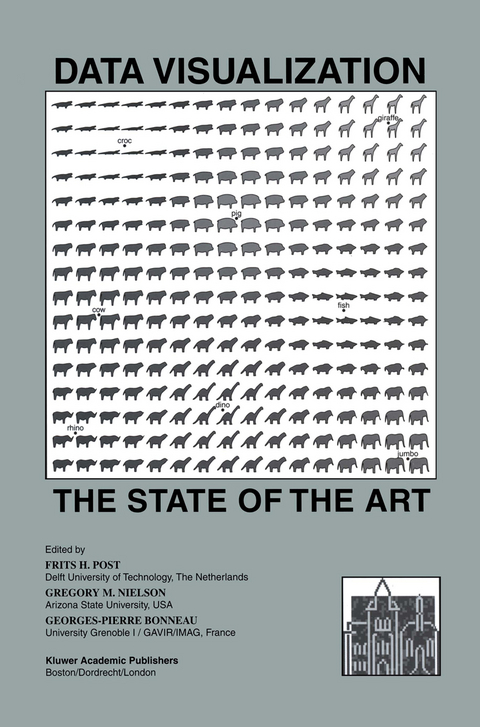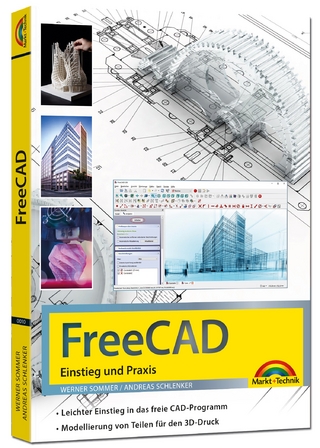
Data Visualization
Springer-Verlag New York Inc.
978-1-4020-7259-8 (ISBN)
Data visualization is currently a very active and vital area of research, teaching and development. The term unites the established field of scientific visualization and the more recent field of information visualization. The success of data visualization is due to the soundness of the basic idea behind it: the use of computer-generated images to gain insight and knowledge from data and its inherent patterns and relationships. A second premise is the utilization of the broad bandwidth of the human sensory system in steering and interpreting complex processes, and simulations involving data sets from diverse scientific disciplines and large collections of abstract data from many sources.
These concepts are extremely important and have a profound and widespread impact on the methodology of computational science and engineering, as well as on management and administration. The interplay between various application areas and their specific problem solving visualization techniques is emphasized in this book. Reflecting the heterogeneous structure of Data Visualization, emphasis was placed on these topics: -Visualization Algorithms and Techniques;
-Volume Visualization;
-Information Visualization;
-Multiresolution Techniques;
-Interactive Data Exploration.
Data Visualization: The State of the Art presents the state of the art in scientific and information visualization techniques by experts in this field. It can serve as an overview for the inquiring scientist, and as a basic foundation for developers. This edited volume contains chapters dedicated to surveys of specific topics, and a great deal of original work not previously published illustrated by examples from a wealth of applications. The book will also provide basic material for teaching the state of the art techniques in data visualization.
Data Visualization: The State of the Art is designed to meet the needs of practitioners and researchers in scientific and information visualization. This book is also suitable as a secondary text for graduate level students in computer science and engineering.
I Visualization Algorithms and Techniques.- Efficient occlusion culling for large model visualization.- Localizing vector field topology.- Feature tracking with skeleton graphs.- Correspondence analysis: visualizing property-profiles of time-dependent 3D datasets.- Specializing visualization algorithms.- Isosurface extraction for large-scale data sets.- II Volume Visualization.- Topologically-accentuated volume rendering.- Reconstruction issues in volume visualization.- High quality splatting and volume synthesis.- Cellfast: Interactive unstructured volume rendering and classification.- Cell projection of meshes with non-planar faces.- Segmentation and texture-based hierarchical rendering techniques for large-scale real-color biomedical image data.- III Information Visualization.- eBusiness Click Stream Analysis.- Hierarchical exploration of large multivariate data sets.- Visualization of multidimensional data using structure preserving projection methods.- Visualizing process information and the health status of wastewater treatment plants—A case study of the ESPRIT-project WaterCIME.- IV Multiresolution Methods.- Data structures for 3D multi-tessellations: an overview.- A data model for adaptive multi-resolution scientific data.- Multiresolution representation of datasets with material interfaces.- Generalizing lifted tensor-product wavelets to irregular polygonal domains.- Ranked representation of vector fields.- V Modelling Techniques.- Procedural volume modeling, rendering, and visualization.- Surface approximation to point cloud data using volume modeling.- Enriching volume modelling with scalar fields.- Fast methods for computing isosurface topology with Betti numbers.- Surface interpolation by spatial environment graphs.- VI Interaction Techniques andArchitectures.- Preset based interaction with high dimensional parameter spaces.- Visual interaction to solving complex optimization problems.- Visualizing cosmological time.- Component-based intelligent visualization.- Author Index.
| Reihe/Serie | The Springer International Series in Engineering and Computer Science ; 713 |
|---|---|
| Zusatzinfo | X, 453 p. |
| Verlagsort | New York, NY |
| Sprache | englisch |
| Maße | 155 x 235 mm |
| Themenwelt | Informatik ► Grafik / Design ► Digitale Bildverarbeitung |
| Informatik ► Theorie / Studium ► Künstliche Intelligenz / Robotik | |
| ISBN-10 | 1-4020-7259-7 / 1402072597 |
| ISBN-13 | 978-1-4020-7259-8 / 9781402072598 |
| Zustand | Neuware |
| Informationen gemäß Produktsicherheitsverordnung (GPSR) | |
| Haben Sie eine Frage zum Produkt? |
aus dem Bereich


